7 min read
Which ESG standards or frameworks should I use?
7 min read
Navigating the “Acronym Soup” of ESG for your benefit
Don’t let the bewildering range of acronyms deter you. Even ESG experts take time to fully understand the intricacies of how businesses demonstrate their credentials in this field. Thankfully you don’t necessarily need to know exactly how they work to understand how useful they can be.
Here is a top-level overview of the most useful to consider when developing an ESG strategy – the ESG standards and frameworks that can be the foundation for any company or leader just starting their journey. CEOs or CFOs that need to know where to focus can use this as a cheat sheet and check-list to ensure the essentials are covered.
However, don’t lose sight of the main focus of this exercise – creating an authentic ESG voice for your organization. After that, focus first on the legal requirements. Then, if it’s not required by law, simply choose the parts of the standards or frameworks below that help to demonstrate positive progress. The objective is to build trust in your ESG strategy, by showing you are delivering on each of the ESG promises that are important to your business and stakeholders.
Regulatory bodies
The organizations that create ESG laws.

EFRAG
The European Financial Reporting Advisory Group was established to review financial reporting and sustainability reporting, develop and promote European views in the field of corporate reporting and deliver new EU Sustainability Reporting Standards.
The Corporate Sustainability Reporting Directive (CSRD) is EU legislation that establishes ESG reporting requirements for organizations. This expands upon and replaces the Non-Financial Reporting Directive (NFRD). In total, around 50,000 organizations will need to comply with the CSRD. The European Commission has planned a phased rollout.
-
From 1 January 2024 for large public-interest companies (with over 500 employees) already subject to the non-financial reporting directive, with reports due in 2025 (currently around 11,700 organizations);
-
From 1 January 2025 for large companies that are not presently subject to the non-financial reporting directive (with more than 250 employees and/or €40 million in turnover and/or €20 million in total assets), with reports due in 2026;
-
From 1 January 2026 for listed SMEs and other undertakings, with reports due in 2027.
-
SMEs can opt-out until 2028.
Find out more about EFRAG and CSRD in this webinar and blog.
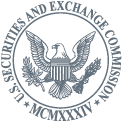
SEC
The U.S. Securities and Exchange Commission is an independent agency of the US federal government charged with enforcing the law against market manipulation. As investor demand for climate and other ESG information increases, the SEC is responding with proposed rules for enhanced and standardized climate-related disclosures.
Organizations will soon be required to report on a wide range of climate related issues if they are listed in the US. More information is due in 2023.
Find out more about the proposed SEC rules in this webinar.
Standards
Metrics based on processes that provide specific rules for ESG measurement and disclosure.
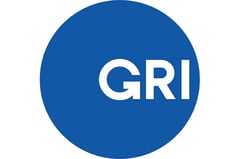
GRI
The Global Reporting Initiative is an independent body that helps organizations take responsibility for the impact they have on the world around them. GRI provides the global common language to communicate those impacts.
Organizations use the GRI Standards for sustainability reports, or use parts of their content to disclose information for specific purposes, for example, climate change impacts for investors and consumers. They are important because they are the world’s most widely used standards for sustainability reporting and often considered the standards of reference.
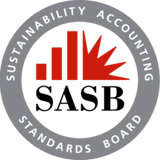
SASB
The Sustainability Accounting Standards Board’s Standards focus on the disclosure of financially material “decision-useful” information on sustainability for investors. Available for 77 industries, it identifies the subset of environmental, social, and governance issues most relevant to financial performance in each industry.
Organizations use SASB to ensure they are speaking the language that financial markets and investors want. They are valuable because they are concise and industry specific. Importantly SASB standards are now part of the International Financial Reporting Standards (IFRS), the widely adopted global financial accounting standard.
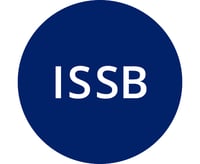
The ISSB was established at COP26 to deliver a comprehensive global baseline of sustainability-related disclosure standards that provide capital markets with information about companies’ sustainability-related risks and opportunities, helping them make informed decisions.
This standard is also part of IFRS, which means it has the potential to achieve its goal of becoming the baseline for sustainability disclosure. Importantly, these standards place emphasis on ensuring the executive management team and board have full oversight on ESG risks and opportunities that are material to their business.
Frameworks
High-level guidelines that provide principles and guidance for how information should be disclosed.

The Task Force on Climate-related Financial Disclosures was created by the Financial Stability Board (FSB) to improve and increase reporting of climate-related financial information. It aims to make financial risks and opportunities related to climate change become a natural part of companies’ risk management and strategic planning processes. The framework is structured around four thematic areas: governance, strategy, risk management alongside metrics and targets.
This framework is important because Brazil, Hong Kong, Japan, New Zealand, Singapore, Switzerland, the United Kingdom and the European Union have made TCFD reporting mandatory for certain entities. Nearly 60% of the world's 100 largest public companies support the TCFD and/or report according to TCFD recommendations.
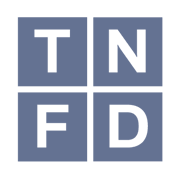
The Taskforce for Nature Related Financial Disclosures has a mission to develop and deliver a risk management and disclosure framework for organizations to report and act on evolving nature-related risks. Its ultimate aim is to support a shift in global financial flows away from nature-negative outcomes and toward nature-positive outcomes.
This framework is important because it looks at natural capital, biodiversity and ecosystems. The general consensus amongst experts in this field is that these topics will be the next ‘climate change’ level issues that organizations will be required to disclose, so you can get ahead of the curve by familiarizing yourself with them.
Focus on creating trust and demonstrating credibility
This is just a selection of frameworks, standards and regulations that are useful to either help set a benchmark, or to be aware of in the future. These focus primarily on disclosure, because this is likely to be the focus of a C-suite just starting out on ESG.
Remember, this is about creating trust, and to encourage the first steps while reducing the fear of getting it wrong. In the absence of experience or a tradition of reporting about the dynamic and uncharted field of ESG these can act as a beacon and offer a guide to demonstrating credibility.
For more guidance on leveraging these insights effectively, watch our webinar on building effective ESG governance.
Continue the series to find out how often you need to review ESG - and who’s responsible.

